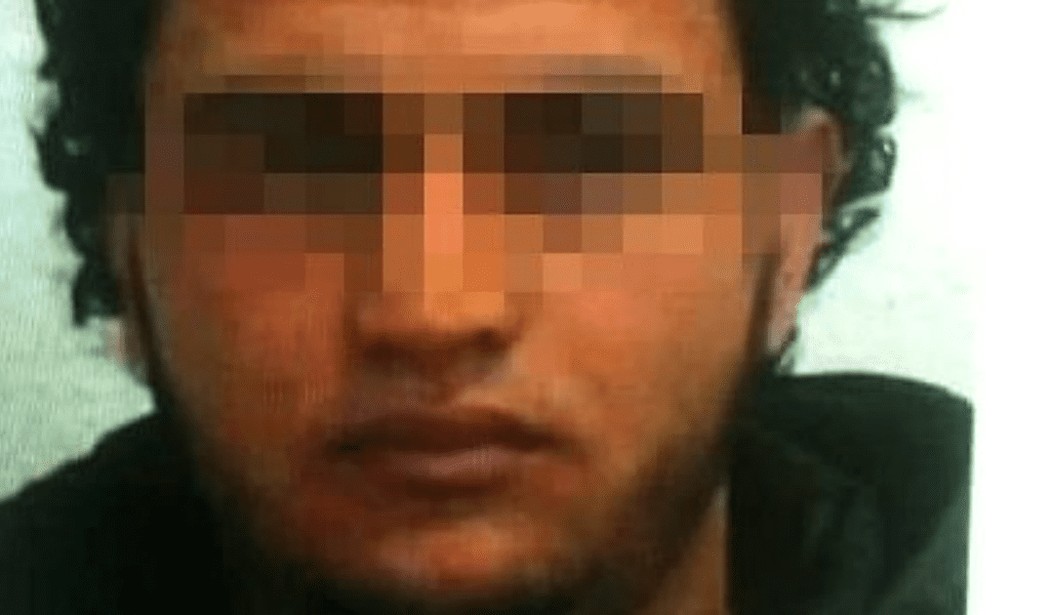German police have launched a manhunt for a young Tunisian man whose identity documents were discovered in the cabin of the truck used in the Berlin Christmas market attack, which killed 12 people and injured 48 others on Monday. The Islamic State (ISIS) Amaq news agency claimed the attacker — whom they did not name — was one of theirs on Tuesday.
The suspect, a Tunisian national with refugee status in Germany named Anis A., is also believed to have several IDs with different names.
++ Polizei sucht diesen Mann mit mehreren Identitäten: Anis A. und Ahmed A. ++ Zum Liveticker: https://t.co/KGVy9M9uBp pic.twitter.com/Lnh52wRdgc
— Berliner Zeitung (@berlinerzeitung) December 21, 2016
The ID was found under the driver’s seat, the German outlet Der Spiegel reported. According to that report, the suspect was born in Tataouine, Tunisia, in 1992.
A German security official told CNN the suspect had been arrested in the southern German town of Friedrichshafen in August — with forged documents on his way to Italy. As in so many previous cases, the terror suspect had narrowly avoided officials before, being released by a judge.
The suspect had actually applied for asylum in Germany and was rejected, according to the interior minister of the German state North-Rhine Westphalia, Ralph Jäger. The authorities ran into problems when trying to deport the suspect.
“The man could not be deported because he had no valid ID papers,” Jäger said. Worse, Tunisia initially denied that this man was their citizen.
German police again ran across the suspect when he was looking for a gun, the official added. Once again, he was not apprehended. In other words, he fits the pattern of the “known wolf” scandal — of the 14 attacks under Obama, the FBI knew attackers 12 times.
But in this case, the suspect’s identity might be somewhat protected by his multitude of passports.
Bild, another German news source, quoted police sources who said Anis A. had several passports with different names and ages between 21 and 23. Each passport has a last name starting with the letter A, according to Allgemeine Zeitung Mainz.
The suspect’s German residence permit was reportedly issued in the state of North-Rhine Westphalia. The outlet Suddeutsche Zeitung reported that Anis A. came to Germany as a refugee and filed an asylum request. He was later granted a residence permit.
Germany’s state news agency, DPA, reported that police and secret service have put “immense security measures” in place in North-Rhine Westphalia. The suspect was also reportedly in contact with Salafist preachers from the cities of Hildesheim and Duisburg.
Investigators released the 23-year-old Pakistani refugee arrested earlier, admitting that he was not the attacker. Police say the actual attacker may be armed (the truck’s original driver was found dead inside) and is still on the run.
Following Monday’s attack, European police forces are gearing up for similar attacks on Christmas markets. French President Francois Hollande said his country has “a high level of threat” following the Berlin attack, but they also have “a particularly high level of mobilization and vigilance.”
France’s best-known Christmas market is in the picturesque eastern city of Strasbourg, and has been a particular concern for security forces. At least two jihadist cells in the city have been broken up in recent years.
Another potential target is the Christmas market along Paris’ Champs-Elysees avenue. That particular market was the target for a gang of six suspected jihadists arrested in November. Following the Berlin attack, French officials added concrete blast blocks at pedestrian entrances to the market on Tuesday, in order to prevent such an attack.
In Britain, the city of Birmingham erected concrete blocks this month around what it calls the “largest authentic German Christmas market outside Germany or Austria.”
Christmas markets are a natural target for radical Islamic terrorists — an attacker can ruin the cheer of Christmas and kill shoppers in a congested area of high economic activity.
Since Christmas is both a Christian and a secular holiday, militants can attack an “infidel” faith and Western “decadent” culture in one. The increased security in European cities is a good thing, but President Hollande is right — the threat is far from over.









Join the conversation as a VIP Member